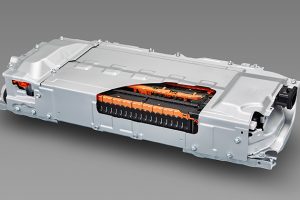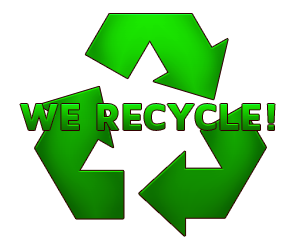Hybrid Car Battery Recycling Surrey, BC
AUTOMOTIVE HYBRID BATTERY RECYCLING VANCOUVER
Future fuels: estimates suggest by 2020 more than 7% of the global transportation market will be electric or hybrid vehicles growing popularity of hybrid cars is driving the global demand for lithium but what about when these cars reach the end of their lives? Can Li-ion batteries be easily recycled?
Increasing oil prices, demand for urban vehicles, megacities and focus on sustainable transportation have kickstarted a substantial trend towards automotive electrification such as hybrids and electric vehicles (EVs). Estimates suggest that by 2020, EVs are likely to account for more than 7% of the global transportation market. However, concerns remain regarding the supply of critical elements needed for these vehicles’ batteries; there is a threat regarding the availability of Lithium needed for battery production. This threat has shifted the focus towards ensuring the continuous supply of materials needed for the green revolution through reuse and recycling of batteries. With more than 70% of EVs likely to be introduced in 2015 with lithium-ion (Li-ion) based battery chemistry, the recycling of Li-ion has become a crucial topic in the automotive industry.
Lithium supply and challenges in Canada
There are a number of challenges that are likely to impact lithium supply in the future. Although there is sufficient amount of lithium resources available globally to meet the demand, almost 70% of the global lithium deposits are concentrated in South America’s ABC (Argentina, Bolivia and Chile) region. This poses an inherent risk due to the accessibility of the raw material that is available only in a specific geography. Unrest or instability of the governments in these regions can greatly affect the supply and have impact on the battery price and in turn, the vehicle cost.
Lithium is also consumed by a number of other applications or sectors like construction, pharmaceuticals, ceramics and glass and so far the consumption by the automotive industry has been only a small fraction. At present, batteries account for only about one quarter of the current lithium consumption, which is expected to reach about 40% by 2020. Lithium constitutes only a small portion of the cost among other raw materials needed for battery manufacturing. However, with more than one million EVs expected by 2015, there will be a significant pressure on lithium suppliers to cater to demand.
To secure lithium resources, inter-governmental as well as OEM–governmental partnerships are being established. Vehicle manufacturers and the national governments are treating lithium as the future energy source and have started forging alliances to safeguard their needs.
Toyota and Magna International – Mitsubishi have forged partnerships with lithium exploration companies and have invested large sums to develop lithium deposits in Argentina to safeguard and secure the lithium resources to fulfil their needs. Japan has forged a partnership with the Bolivian Government, which binds the former to offer comprehensive economic aid in exchange of supplies of lithium and other rare-earth metals from the latter.
Partnerships such as these enable a strong foothold in the supply chain, increase stakeholders and reduce competition with a focus on controlling price fluctuations in the event of significant rise in demand. Lithium prices have nearly tripled over the last 10 years, as illustrated in Figure 1. Agreements are negotiated between seller and the user and the price varies by use in industry/sectors. Current prices are around $5,500 to $6,000 per ton of lithium carbonate depending on applications.
lithium supply and its price in the future is expected to be impacted by a number of factors, such as additional demand from consumer electronics, geo-political relationships, environmental impact of mining, new modes of mobility solutions gaining large acceptance such as electric two-wheelers.
Need for recycling in Surrey, BC
OEMs are looking at overcoming the dependency on lithium through reuse of lithium batteries in other applications (second-life) and through recycling the batteries once they have completed their lifecycle. However, it does not make any economic sense to recycle the batteries. Batteries contain only a small fraction of lithium carbonate as a percent of weight and are inexpensive compared to cobalt or nickel. The average lithium cost associated with Li-ion battery production is less than 3% of the production cost. Intrinsic value for the Li-ion recycling business currently comes from the valuable metals such as cobalt and nickel that are more highly priced than lithium. Due to less demand for lithium and low prices, almost none of the lithium used in consumer batteries is completely recycled.
While lithion is 100% recyclable, currently economics do not add up to recycle it.
Recycled lithium is as much as five times the cost of lithium produced from the least costly brine based process. It is not competitive for recycling companies to extract lithium from slag, or competitive for the OEMs to buy at higher price points from recycling companies. Though lithium is 100% recyclable, currently, recycled lithium reports to the slag and is currently used for non-automotive purposes, such as construction, or sold in the open-markets. However, with the increasing number of EVs entering the market in the future and with a significant supply crunch, recycling is expected to be an important factor for consideration in effective material supply for battery production.
Closed loop recycling, where the recycled materials are sold back to OEMs, is likely to help against potential price fluctuation of metals or compounds. EV battery recycling is expected to play a significant part of the value chain by 2016 when large quantities of EV batteries will come through the waste stream for recycling.
Projects are currently underway in Europe, the United States and Japan to develop effective and feasible recycling technologies with a complete life cycle analysis of recycling. Early stage partnerships and research programs such as LithoRec and LiBRi with stakeholders across the value chain demonstrate the immediate need to develop comprehensive recycling solutions.
Challenges in recycling, Lower Mainland Vancouver , BC
The battery recycling market is largely price driven as technology is not a critical differentiating factor. All the key participants implement the same level of technology in their product offerings. Therefore, the key differentiating factor becomes price, which in a competitive environment reduces profitability for battery recycling firms.
Specialised processes and dedicated small scale recycling plants closer to vehicle manufacturers are likely to be the trend in the future. The main challenge hindering the industry is the long-term nature of financial investments required by market participants to develop specialised waste disposal services. As the market is still unexplored, the specific impacts and overall profitability of these investments are unknown and thereby create ambiguity and uncertainty about making such commitments.
With lithium recycling in its infancy, there is currently no main recycling infrastructure in the world that treats only automotive Li-ion batteries. A few pilot plants, such as Umicore’s Hoboken plant in Belgium that are at a demonstration stage exist. Lack of standardisation in battery chemistries and changing landscape with respect to different elements under research for battery production other than lithium have made evaluation of the recycled value of the components uncertain for the recyclers.
Future battery chemistries under research and development, such as phosphate or manganese-based chemistries, have little or no valuable metals like cobalt or nickel. Thus, there is a net negative value for recycling as the effort to recycle only for lithium from these chemistries would be very high. Hence, recycling in the long-term would be mainly for ecological benefits and for adherence to environmental laws.
For the future, recycling of Li-ion batteries is expected to be one of the main sources of lithium supply. Unlike oil, where the volatile price fluctuations will lead to increase in only the running costs, potential price fluctuations of lithium would impact the total purchase price of the car.
Hence, recycling is expected be one of the means to hedge against the uncertain and potential price fluctuations arising due to geo-political or other barriers.
Battery Recycling Surrey BC






